#ai solutions dubai
Explore tagged Tumblr posts
Text
14 Marketing Challenges You’ll Face In 2024 (+ Solutions)
In this article, we'll explore 14 marketing challenges that are expected to arise in 2024, along with effective strategies to overcome them.
#artificial intelligence#social media marketing#ai generated#social media#marketing#companies#uk#united arab emirates#uae#dubai#services#abudhabi#erp software uae#erp solutions uae#business setup in uae#attestation services in uae#dubailife
3 notes
·
View notes
Text
India is a hub for technology and innovation and the field of machine learning Solution Development in India — Microlent Systems
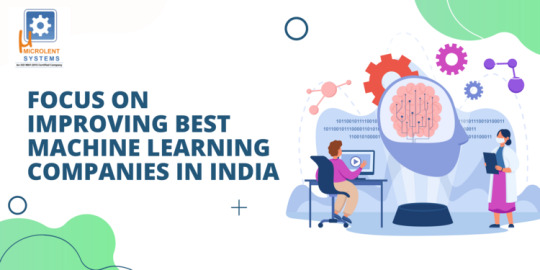
India is a hub for technology and innovation, and the field of machine learning is no exception. With a growing number of companies specializing in this field, it can be challenging to know which one to choose. In this article, we will discuss the best machine learning companies in India, with a special focus on Microlent Systems.
Microlent Systems: Microlent Systems is a software development company located in Jodhpur, Rajasthan, that specializes in machine learning. They offer a range of services, including data analysis, predictive modeling, and natural language processing. They have worked with clients across various industries, from healthcare to finance.
Fractal Analytics: Fractal Analytics is a data analytics company that specializes in machine learning. They offer a range of services, including data engineering, data visualization, and artificial intelligence. They have worked with clients such as Microsoft, Coca-Cola, and PepsiCo.
Wipro: Wipro is a global technology company that offers machine learning solutions, including predictive maintenance, fraud detection, and chatbot development. They have worked with clients across various industries, including banking, healthcare, and retail.
Analytics India Magazine: Analytics India Magazine is a media company that covers the latest trends and developments in the field of machine learning. They offer training programs, research reports, and industry events to help businesses stay up-to-date with the latest developments in machine learning.
Tiger Analytics: Tiger Analytics is a consulting firm that offers machine learning solutions, including predictive modeling, optimization, and data visualization. They have worked with clients such as Adidas, Samsung, and Amazon.
LatentView Analytics: LatentView Analytics is a data analytics company that offers machine learning solutions, including customer segmentation, price optimization, and demand forecasting. They have worked with clients such as Microsoft, Coca-Cola, and Johnson & Johnson.
BRIDGEi2i: BRIDGEi2i is a consulting firm that offers machine learning solutions, including sales forecasting, customer segmentation, and supply chain optimization. They have worked with clients across various industries, including banking, retail, and healthcare.
Amazon Web Services: Amazon Web Services (AWS) offers a range of machine learning solutions, including image and speech recognition, chatbot development, and predictive analytics. They have worked with clients such as Netflix, Airbnb, and Samsung.
In conclusion, there are several excellent machine learning companies in India, each offering unique solutions and services. Microlent Systems stands out among them, with its expertise in data analysis, predictive modeling, and natural language processing. Located in Jodhpur, Rajasthan, they are well-positioned to provide high-quality machine learning solutions to clients across various industries.
Read More :
https://microlent.com/blog/why-you-should-focus-on-improving-best-machine-learning-companies-in-india.html
#softwaredevelopment#machinelearning#india#dubai#uae#usa#web development#mobile app development#software#startups in india#innovation#technology#ai#ml solution#machine learning#machine learning course
4 notes
·
View notes
Text
Automation Solutions Tailored to Your Business - Centelli
Drive growth and innovation with RPA and Intelligent Automation Solutions from Centelli. We specialize in delivering customized automation that enhances business process management. Our AI-powered solutions make workflows smoother, faster, and more effective.
How We Help:
Automate routine tasks to reduce workloads
Automate data capture for error-free processing
Automate scheduling, approvals, and reporting
Automate reconciliations, updates, and data sharing
AI-led workflows for seamless collaboration
We customize solutions to integrate with your existing infrastructure, only suggesting modifications when absolutely necessary. This means:
No unnecessary infrastructure investments
Cost-effective automation without major system changes
Our team ensures a smooth transition with minimal disruption and maximum impact. Plus, our scalable solutions ensure long-term ROI and business growth.
Get started today! Contact us to learn how our automation solutions can help you build a smarter, more efficient business.

#centelliltd#intelligent automation#automation solutions#AI Solutions#technology#Cost effective#digital worker#Business#centelli#Dubai#UAE
0 notes
Text
Top 5 AI Chatbots Revolutionizing Customer Service in Dubai

In today’s fast-paced world, customer service is more important than ever. Businesses in Dubai and around the globe are adopting AI chatbots to improve customer experience, save time, and reduce costs. With chatbots, companies can provide instant, 24/7 support while focusing on growing their business.
At CEQUENS, we specialize in providing cutting-edge business communication tools and solutions to help businesses thrive. In this blog, we’ll explore the top 5 AI chatbots for customer service in Dubai and how they can transform your business.
Read more: A Guide to Chatbots for Small Businesses
What is an AI Chatbot?
An AI chatbot is a software program that uses artificial intelligence to interact with users in real-time. It can answer questions, resolve problems, and even perform tasks like booking appointments or processing orders.
These bots are now essential for businesses that want to provide efficient and engaging customer support.
Why AI Chatbots are Important for Customer Service
Businesses in Dubai face high customer expectations, and customer support chatbots are the perfect solution to meet these demands. Here’s why:
24/7 Availability: Chatbots are always online, ready to assist customers anytime.
Cost Efficiency: They handle multiple queries simultaneously, reducing the need for large support teams.
Faster Response Times: Instant replies ensure customers don’t have to wait.
Multilingual Support: Serve customers in multiple languages, essential in Dubai’s diverse market.
Improved Customer Experience: Personalize interactions based on customer data.
Top 5 AI Chatbots for Customer Service in Dubai
1. CEQUENS Chatbot Solution
When it comes to reliability and innovation, CEQUENS leads the way in business communication solutions. Our chatbot solution is designed to provide seamless customer interactions while integrating with existing systems like CRMs and ticketing platforms.
Key Features:
Customizable workflows to meet specific business needs.
Multilingual capabilities for Dubai’s diverse population.
Real-time analytics to track customer interactions.
Easy integration with business communication tools.
2. Tars
Tars is an AI-powered chatbot that specializes in creating conversational workflows for businesses. Known for its simplicity, Tars helps companies engage customers through natural, friendly interactions.
Why Choose Tars?
Drag-and-drop interface for easy setup.
Focused on lead generation and customer support.
Mobile-friendly for on-the-go customer interactions.
3. Intercom
Intercom combines chatbot features with a live chat platform, making it a popular choice for businesses in Dubai. It’s ideal for managing customer inquiries while offering the flexibility of human intervention when needed.
Features:
AI-powered chatbots for common queries.
Integration with support teams for complex issues.
Proactive messaging to engage users before they ask for help.
4. HubSpot Chatbot Builder
HubSpot’s chatbot builder is perfect for businesses looking for a customizable, no-code solution. It integrates seamlessly with HubSpot’s CRM, providing a unified platform for customer service and marketing.
Key Benefits:
Free-to-use chatbot tool.
Customizable scripts for customer interactions.
Insightful reports for tracking customer service performance.
5. Freshchat
Freshchat is designed for customer engagement across multiple platforms, including websites, WhatsApp, and mobile apps. Its AI chatbots help businesses in Dubai streamline customer service and improve satisfaction rates.
Why Freshchat Stands Out:
AI-driven responses to common queries.
Omnichannel support, including social media.
Smart segmentation for targeted customer support.
How to Choose the Right Chatbot for Your Business
When selecting a chatbot, consider these factors:
Business Goals: Do you need a chatbot for customer support, lead generation, or both?
Ease of Integration: Ensure the chatbot works with your current business communication tools.
Customization: Look for a chatbot that aligns with your industry and customer needs.
Budget: Choose a solution that offers great value without exceeding your budget.
At CEQUENS, we help businesses find the perfect customer support chatbot to fit their unique requirements.
The Role of CEQUENS in Dubai’s Chatbot Revolution
As a leader in business communication solutions, CEQUENS provides innovative chatbot technology to support businesses in Dubai. Our solutions are designed to:
Enhance customer interactions.
Automate routine tasks.
Improve operational efficiency.
We are committed to helping businesses stay ahead of the competition by offering reliable and scalable AI chatbot solutions.
Read more: MEA’s Next-Gen Conversational Experiences: ChatApps, RCS, and Bots
Benefits of Using Chatbots for Customer Service
Reduced Workload for Teams: Chatbots handle repetitive tasks, freeing up staff for complex issues.
Improved Customer Satisfaction: Faster, personalized responses lead to happier customers.
Scalable Support: Handle growing customer demands without increasing costs.
Data-Driven Insights: Analyze interactions to improve services and customer experience.
Future Trends in AI Chatbots
Advanced AI Capabilities: Expect chatbots to become more human-like in their interactions.
Voice Integration: Voice-enabled bots will enhance accessibility and convenience.
Deeper Analytics: Businesses will leverage chatbot data to refine strategies.
Wider Adoption: More industries in Dubai will embrace AI chatbots, from retail to healthcare.
Conclusion
AI chatbots are no longer a luxury—they’re a necessity for businesses aiming to succeed in Dubai’s competitive market. From providing instant support to enhancing customer satisfaction, chatbots are transforming the way companies interact with their audience.
At CEQUENS, we offer state-of-the-art AI chatbot solutions tailored to your business needs. Our expertise in business communication tools ensures that you get the best technology to stay ahead of the curve.
Ready to elevate your customer service with a chatbot? Contact CEQUENS Dubai today to explore our customizable solutions and start your journey toward improved customer satisfaction.
#ai chatbot#Customer Support Chatbot#CEQUENS Dubai#Business communication Tools#Business communication Solutions
0 notes
Text
AI Marketing Solutions: Transforming the Future of Digital Marketing

Artificial Intelligence (AI) is revolutionizing various industries, and marketing is no exception. AI marketing solutions are enhancing the way businesses interact with customers, streamline operations, and make data-driven decisions. By leveraging AI technologies, marketers can achieve unprecedented levels of personalization, efficiency, and effectiveness in their campaigns.
What are AI Marketing Solutions?
AI marketing solutions involve using artificial intelligence technologies to automate, optimize, and enhance marketing activities. These solutions utilize machine learning, natural language processing, predictive analytics, and other AI technologies to gather insights, predict outcomes, and improve customer engagement. Key components of AI marketing solutions include:
Customer Data Analysis: Using AI to analyze large volumes of customer data to uncover patterns, preferences, and behaviors.
Personalization: Creating highly personalized marketing messages and experiences based on individual customer data and behavior.
Chatbots and Virtual Assistants: Implementing AI-driven chatbots and virtual assistants to interact with customers in real-time, providing instant support and personalized recommendations.
Predictive Analytics: Using AI to forecast future trends, customer behaviors, and campaign outcomes.
Automated Content Creation: Utilizing AI to generate and curate content, such as blog posts, social media updates, and email newsletters.
Ad Optimization: Applying AI to optimize advertising campaigns in real-time, adjusting bids, targeting, and creatives to maximize ROI.
Sentiment Analysis: Analyzing customer feedback and social media conversations to gauge public sentiment and respond appropriately.
The Importance of AI Marketing Solutions
Enhanced Personalization: AI enables marketers to deliver highly personalized experiences to customers. By analyzing data on individual behaviors and preferences, AI can create tailored recommendations, product suggestions, and content that resonate with each customer.
Improved Efficiency: AI automates repetitive and time-consuming tasks, such as data analysis, content creation, and campaign optimization. This frees up marketers to focus on strategic planning and creative work.
Data-Driven Decision Making: AI provides deep insights into customer behavior and campaign performance. Marketers can use these insights to make informed decisions, refine strategies, and achieve better results.
Real-Time Customer Engagement: AI-powered chatbots and virtual assistants offer real-time customer support and engagement. They can handle inquiries, provide information, and guide customers through their purchase journey 24/7.
Predictive Capabilities: AI can predict future trends, customer behaviors, and campaign outcomes with high accuracy. This allows marketers to stay ahead of the competition and adapt their strategies proactively.
Key AI Marketing Solutions
Customer Data Analysis
AI-driven analytics platforms analyze vast amounts of customer data to identify patterns, preferences, and trends. This helps marketers understand their audience better and tailor their strategies accordingly.
Personalization
AI algorithms can analyze individual customer data to deliver personalized content, product recommendations, and marketing messages. This enhances the customer experience and increases engagement and conversions.
Chatbots and Virtual Assistants
AI-powered chatbots and virtual assistants provide instant, round-the-clock customer support. They can answer questions, offer product recommendations, and assist with transactions, improving customer satisfaction and reducing response times.
Predictive Analytics
Predictive analytics tools use AI to forecast future customer behaviors and market trends. This enables marketers to optimize their strategies, allocate resources effectively, and anticipate customer needs.
Automated Content Creation
AI tools can generate and curate content, such as articles, social media posts, and email newsletters. This saves time and ensures a consistent flow of high-quality content tailored to the audience’s interests.
Ad Optimization
AI-powered platforms optimize advertising campaigns in real-time by adjusting bids, targeting, and creatives based on performance data. This maximizes ROI and ensures that ads reach the right audience at the right time.
Sentiment Analysis
AI tools analyze customer feedback, reviews, and social media conversations to gauge public sentiment. This helps marketers understand customer perceptions and respond to issues proactively.
Challenges and Considerations
While AI marketing solutions offer numerous benefits, there are also challenges to consider:
Data Privacy: Handling large volumes of customer data requires stringent data privacy and security measures to protect sensitive information.
Integration: Integrating AI technologies with existing marketing systems and processes can be complex and may require significant resources.
Expertise: Implementing and managing AI solutions requires specialized skills and knowledge, which may necessitate additional training or hiring.
Cost: AI technologies can be expensive to implement and maintain, especially for small businesses with limited budgets.
The Future of AI Marketing Solutions
The future of AI in marketing looks promising, with continuous advancements in technology driving further innovation. Emerging trends include:
Voice Search Optimization: AI will play a crucial role in optimizing content for voice search, as more consumers use voice-activated devices to find information and make purchases.
Hyper-Personalization: AI will enable even more precise and individualized marketing experiences, leveraging real-time data to tailor messages and offers to each customer’s unique needs.
Augmented Reality (AR): AI-powered AR experiences will become more prevalent, allowing customers to visualize products in their environment before making a purchase.
Emotion AI: AI will analyze facial expressions, tone of voice, and other cues to understand and respond to customer emotions, creating more empathetic and effective interactions.
Conclusion
AI marketing solutions are transforming the way businesses connect with customers, optimize campaigns, and drive growth. By harnessing the power of AI, marketers can deliver personalized experiences, make data-driven decisions, and achieve greater efficiency and effectiveness in their efforts. As AI technology continues to evolve, staying ahead of the curve will be essential for businesses looking to thrive in the competitive digital landscape.
0 notes
Text
Artistic Approaches to Renovate Your Home
Are you considering a home renovation project? In today’s fast-paced world, Artistic Approaches to Renovate Your Home can not only enhance its aesthetics but also improve functionality and energy efficiency.
#Home Renovations#interior design dubai#interior design#architecture and interior design firm in dubai#interior architecture#interiors#shellandcoredubai#shell and core dubai#shellncore#AI#premium home renovation solutions
0 notes
Text
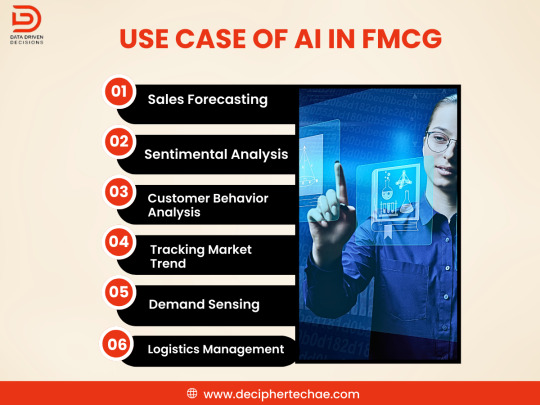
#Use case of AI in FMCG#data science and analytics company#fmcg companies in dubai#data science solutions for fmcg in dubai#data-driven sales and marketing solutions in dubai#maximizer crm in dubai#maximizer crm provider in dubai#data science solutions for fmcg#fmcg sector in dubai#retail company dubai#retail expansion in dubai
0 notes
Text

#Facialrecognitiondubai #Facialrecognitionabudhabi
#facialrecognitionattendancesystemuae #facialrecognitionattendanceuae #facerecognitionattendancesystemsharjah
#facerecognitionattendancesystemajman #facerecognitionattendancesystem #facialrecognization
#facerecognitionattendancesystemsharjah #facerecognizationsoftwareuae
#access control system#access control system supplier abu dhabi#access control system in sharjah#facial recognization uae#facial recognization abu dhabi#facial recognization in sharjah#facial recognization ajman#facial recognization in bur dubai#facial recognization system in UAE#facial recognization Solutions in Abu Dhabi#facial recognition abu dhabi#facial recognition system#facial recognition saudi arabia#facial recognition in saudi arabia#facial recognition riyadh saudi#facial recognition solutions abu dhabi#Ai Based facial recognition Software Abu Dhabi#ai based facial recognition Systems in bur dubai#facial recognition software bur dubai#facial recognition software abu dhabi#facial recognition software in ajman#facial recognition software sharjah#facial recognition attendance system#facial recognition attendance system abu dhabi#facial recognition attendance system in ajman#facial recognition attendance system bur dubai#facial recognition attendance system sharjah#facial recognition attendance system alain#facial recognition attendance system riyadh saudi arabia#facial recognition attendance saudi arabia
1 note
·
View note
Text
An Overview Of AI In Search Engines
In recent years, artificial intelligence (AI) has played a pivotal role in transforming the search engine landscape.
#artificial intelligence#social media marketing#ai generated#social media#marketing#companies#united arab emirates#uk#success#services#dubai#abudhabi#business setup in uae#uae#dubailife#attestation services in uae#erp software uae#erp solutions uae
0 notes
Text

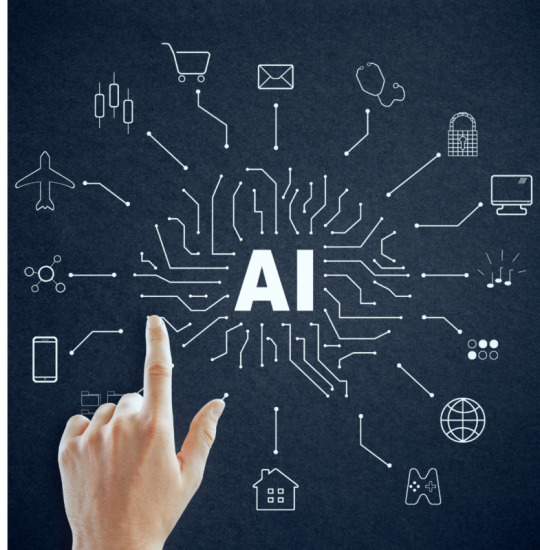
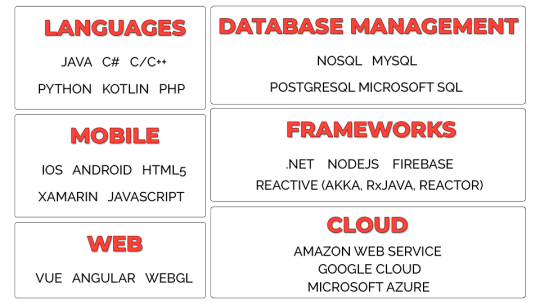
#ai solutions#ai solutions companies#ai solution abu dhabi#ai integration#Artificial Intelligence companies in Dubai#best ai solutions#ai companies abu dhabi#top ai companies in dubai#artificial intelligence companies in abu dhabi#ai company uae#ai solutions for retail#Artificial intelligence companies in Abu Dhabi#ai solution for healthcare
0 notes
Text
How to Overcome Common Challenges in Automation Solutions Implementation?
Automation Solutions is a game-changer for businesses, offering enhanced efficiency, reduced costs, and improved accuracy. However, the path to successful automation is not without its challenges. This blog explores the key obstacles and provides practical strategies for overcoming automation implementation challenges, focusing on infrastructure requirements, ownership within the business, and identifying the best processes.
Implementing automation requires a solid infrastructure to support the technology.
Automation Solutions: Overcoming Common Challenges
Resistance to Change
Employee Involvement: Involve employees early in the automation journey and communicate the benefits clearly. Address concerns and provide assurance about job security and new opportunities.
Incentives: Offer incentives and recognition to employees who actively participate in the automation initiatives and contribute to their success.
Technical Challenges
Pilot Programmes: Start with pilot programmes to test the automation solutions tools and iron out any technical issues before full-scale implementation.
Vendor Support: Work closely with automation vendors to leverage their expertise and support in addressing technical challenges.
Cost Concerns
Cost-Benefit Analysis: Conduct a thorough cost-benefit analysis to demonstrate automation’s long-term savings and ROI. Highlight quick wins to build momentum and justify further investments.
Scalable Solutions: Opt for scalable solutions that allow you to start small and expand gradually, managing costs effectively.
Implementing automation presents several challenges, but these can be effectively managed with the right approach. Businesses can successfully navigate the automation journey by ensuring a robust infrastructure, establishing clear ownership, and carefully selecting the best processes to start with. Embrace these strategies to overcome obstacles and unlock the full potential of automation solutions, driving efficiency, cost savings, and growth in your organisation.
Contact us Today!
#centelliltd#intelligent automation#automation solutions#AI Solutions#technology#Cost effective#digital worker#Business#centelli#Dubai#UAE
0 notes
Text
Expedite IoT and BIM Technology Solutions for the Future UAE
Future with AI Solutions
In an era where technology is advancing at an unprecedented pace, artificial intelligence (AI) has emerged as a transformative force, reshaping industries and revolutionizing the way we live and work. AI solutions are no longer confined to science fiction; they have become an integral part of our daily lives, offering innovative solutions to complex problems. In this blog, we'll delve into the world of artificial intelligence solutions, exploring their diverse applications and the impact they are having across various sectors.
IoT Companies Abu Dhabi
#iotcompaniesuae #iotcompanies #iotsolutionsuae #iotcompaniesinalain #iotcompaniesinburdubai #iotcompaniesajman #iotcompaniesinuae #iotcompaniesinuae #iotcompaniesinalain #iotcompaniesinsharjah #aisolutions #aisolutionsabudhabi #aicompaniesinabudhabi #aisystemintegration #aicompanies #aicompaniessharjah
#ai companies abu dhabi#ai companies in sharjah#ai companies#ai solutions in abu dhabi#ai system integration#ai companies in bur dubai#ai system integartion abu dhabi#ai system integration bur dubai#ai companies in alain#ai system integration sharjah#ai system integration alain#ai companies in abu dhabi#iot companies in abu dhabi#iot solutions in bur dubai#iot solutions in ajman#iot companies in bur dubai#iot solutions in uae#iot solutions#iot#ai system#ai integration abu dhabi#ai integration bur dubai#ai system integration abu dhabi#ai solutions in bur dubai#ai solutions#iot technology solutions in uae#iot consulting solutions in uae#iot consulting solutions in bur dubai#iot consulting in bur dubai
0 notes
Text
Reduce Call Center Costs with Cutting-Edge Conversational AI Solutions

In today’s fast-paced business landscape, efficient customer service is a must-have for any company. However, maintaining call centers can be a costly affair. This is where Conversational AI comes into play, revolutionizing the way companies handle customer inquiries while significantly reducing operational costs. With businesses striving to strike a balance between high-quality customer service and cost-efficiency, Conversational AI solutions are becoming the go-to option for lowering call center costs. In this blog, we will explore how Conversational AI can transform your call center operations, helping you deliver excellent customer support without breaking the bank.
Read more: A beginner’s guide to Conversational Marketing
What Is Conversational AI?
Conversational AI refers to technology that enables machines to understand, process, and respond to human language. Using natural language processing (NLP) and machine learning, Conversational AI can simulate human-like interactions through various channels, including voice, text, and chat interfaces. It powers virtual assistants, chatbots, and automated customer support systems, making customer interactions smoother and more efficient.
The Role of Conversational AI in Reducing Call Center Costs
24/7 Availability Traditional call centers often operate within fixed business hours, meaning customers outside those hours need to wait for a response. Conversational AI, on the other hand, can be available 24/7, providing immediate assistance to customers at any time. This reduces the need for a large team of customer service agents working in different shifts, thereby lowering labor costs.
Handling Repetitive Queries A large percentage of customer inquiries are repetitive—questions about product features, service availability, or common troubleshooting issues. By integrating a Conversational AI solution like a chatbot, companies can automate responses to these common questions, freeing up live agents to focus on more complex tasks. This leads to greater efficiency and lower operational costs.
Scalability Without Increasing Costs As businesses grow, so do customer service demands. Expanding a traditional call center involves hiring and training more staff, which can be expensive. Conversational AI platforms can scale easily to handle increasing customer interactions without requiring additional staff, keeping costs low.
Reducing Call Handling Times Conversational AI systems can quickly retrieve customer information and offer instant solutions, reducing the average time spent on each call. Shorter call durations result in fewer resources spent per customer, helping to further drive down call center costs.
Minimizing Human Error Human agents are prone to making errors, which can lead to customer dissatisfaction and potential revenue loss. AI-powered customer service tools reduce errors by consistently delivering accurate information, improving overall customer satisfaction while reducing operational inefficiencies.
Conversational AI in Dubai: CEQUENS Leading the Way
CEQUENS has emerged as a top Conversational AI vendor in Dubai, providing businesses with cutting-edge solutions to optimize customer service operations. With CEQUENS' robust AI-powered tools, companies can streamline their communication processes, lower operational costs, and improve customer satisfaction.
Whether it's integrating Conversational AI into an existing communication framework or setting up entirely new automated customer service systems, CEQUENS Dubai provides businesses with the tools they need to thrive in the competitive landscape. Its wide range of business communication solutions includes chatbots, virtual assistants, and advanced analytics tools, making it easier than ever for companies to adopt and benefit from Conversational AI.
Business Communication Tools Powered by AI
Implementing Conversational AI is not just about cutting costs; it's also about enhancing the overall customer experience. By integrating AI-powered business communication tools, companies can offer fast, personalized responses that make customers feel valued. Here's how these tools can be leveraged:
Voice Assistants: Automating voice-based interactions can handle calls without the need for human intervention.
Chatbots: AI-driven chatbots can resolve issues in real time, providing immediate support and solutions.
Multichannel Communication: Conversational AI can seamlessly integrate across various communication channels, including SMS, email, and social media, ensuring customers can reach you through their preferred platform.
Use Case: Conversational AI in Customer Service for Businesses
Many companies around the world have already adopted Conversational AI solutions to manage their customer service tasks more efficiently. For instance, telecom companies, banks, and e-commerce platforms are increasingly relying on Conversational AI to handle thousands of customer inquiries daily. These solutions enable companies to respond faster, reduce wait times, and lower the cost of handling customer service inquiries.
How to Choose the Right Conversational AI Vendor
Choosing the right vendor is crucial for success. Here are some tips on selecting the best Conversational AI vendor:
Flexibility and Scalability Choose a provider that can scale with your business and offers flexible integration options across different communication channels.
Customizability Ensure the vendor provides customizable solutions that align with your business's specific needs.
Proven Track Record Look for vendors with proven experience and success in implementing Conversational AI in your industry.
Ongoing Support Make sure the vendor offers comprehensive support and updates to keep your system running smoothly.
Read More: Multichannel Chat: A Conversational Platform for the Future
Final Thoughts: Transforming Call Centers with Conversational AI
As businesses continue to explore ways to improve efficiency while lowering costs, Conversational AI presents an ideal solution for transforming call centers. By automating customer interactions, providing 24/7 support, and reducing call handling times, companies can significantly lower operational costs without sacrificing customer satisfaction. With a trusted Conversational AI vendor like CEQUENS Dubai, companies can build a future-ready call center that enhances customer experiences while staying cost-efficient.
#conversational ai#conversational ai in dubai#conversational ai vendor#business communication tools#Business communication Solutions
0 notes
Text
AI Marketing Solutions: Transforming Digital Strategies with Artificial Intelligence

Introduction
Artificial Intelligence (AI) is revolutionizing the field of marketing by offering advanced tools and techniques that enhance targeting, personalization, and efficiency. This article explores the various AI marketing solutions available, their benefits, and how businesses can harness AI to optimize their digital marketing strategies.
Understanding AI Marketing Solutions
AI marketing solutions leverage machine learning algorithms and data analytics to automate and improve various aspects of marketing campaigns. These solutions enable businesses to analyze vast amounts of data, predict consumer behavior, personalize marketing messages, and optimize campaign performance in real-time.
Key AI Marketing Solutions
Predictive Analytics
Description: Predictive analytics uses historical data and AI algorithms to forecast future trends, behaviors, and outcomes. In marketing, it helps in predicting customer behavior, identifying potential leads, and optimizing marketing strategies.
Benefits: Improves decision-making, enhances targeting accuracy, reduces risks, and increases ROI.
Personalization
Description: AI-powered personalization tailors marketing messages and content to individual preferences, behaviors, and demographics. This customization enhances customer experience and engagement.
Benefits: Increases conversion rates, fosters customer loyalty, boosts engagement, and improves customer satisfaction.
Chatbots and Virtual Assistants
Description: AI-driven chatbots and virtual assistants use natural language processing (NLP) to interact with customers in real-time. They provide instant responses to queries, assist in customer service, and guide users through the sales funnel.
Benefits: Enhances customer support, improves user experience, reduces response times, and automates repetitive tasks.
Content Generation
Description: AI can generate and optimize content at scale using algorithms that analyze data trends, audience preferences, and SEO parameters. This includes automated writing, curation, and optimization of blog posts, articles, and social media content.
Benefits: Increases content production efficiency, maintains consistency, improves SEO rankings, and saves time for marketers.
Sentiment Analysis
Description: Sentiment analysis uses AI to analyze customer feedback, social media mentions, and reviews to gauge sentiment (positive, negative, neutral) towards a brand or product. This data helps in understanding customer perceptions and adjusting marketing strategies accordingly.
Benefits: Provides insights into customer opinions, identifies trends, manages brand reputation, and guides crisis management.
Behavioral Targeting
Description: AI-driven behavioral targeting analyzes user behavior and interactions across digital channels to segment audiences based on their interests, preferences, and purchase intent. This enables personalized marketing campaigns that are more likely to resonate with specific customer segments.
Benefits: Improves ad relevance, increases conversion rates, reduces ad spend wastage, and enhances customer satisfaction.
Dynamic Pricing
Description: AI-powered dynamic pricing adjusts product prices in real-time based on market demand, competitor pricing, and customer behavior data. This strategy optimizes pricing to maximize sales and profitability.
Benefits: Maximizes revenue, improves competitiveness, responds to market changes swiftly, and enhances pricing strategy effectiveness.
Implementing AI Marketing Solutions
Assess Business Needs: Identify specific marketing challenges and goals that AI solutions can address, such as improving customer engagement, increasing sales, or optimizing ad spend.
Choose the Right AI Tools: Select AI platforms, software, or tools that align with your business objectives and integrate seamlessly with your existing marketing technology stack.
Data Integration and Preparation: Ensure clean, reliable data from various sources (e.g., CRM, social media, website analytics) to fuel AI algorithms effectively.
Training and Implementation: Train AI models with relevant data and customize algorithms to meet specific marketing objectives. Implement AI solutions gradually and monitor performance closely.
Measure and Optimize: Continuously analyze AI-driven metrics, KPIs, and performance indicators to evaluate effectiveness. Use insights to refine strategies, improve targeting, and enhance ROI.
Compliance and Ethics: Adhere to data privacy regulations (e.g., GDPR, CCPA) and ethical standards when using AI for marketing to maintain customer trust and compliance.
Conclusion
AI marketing solutions represent a significant advancement in digital marketing, enabling businesses to achieve greater efficiency, precision, and effectiveness in their marketing efforts. By leveraging predictive analytics, personalization, chatbots, content generation, sentiment analysis, behavioral targeting, and dynamic pricing, businesses can enhance customer experiences, drive sales, and stay competitive in the digital age. Embracing AI technology strategically can lead to transformative results and sustainable growth for organizations across industries.
0 notes
Text




سجل سمو الشيخ حمدان بن محمد بن راشد آل مكتوم، ولي عهد دبي، رئيس المجلس التنفيذي لإمارة دبي، في آخر تدوين لسموه عبر حسابه على منصة «إكس» 🔻
اعتمدنا اليوم تعيين 22 رئيساً تنفيذياً للذكاء الاصطناعي في حكومة دبي.. ضمن رؤية مستقبلية مح��رها تعزيز الاستفادة من الذكاء الاصطناعي في تطوير العمل الحكومي، ودعم تجربة حكومة دبي في هذا المجال ونقلها إلى آفاق جديدة ترسخ ريادتها عالمياً في ابتكار الحلول القائمة على التكنولوجيا المتقدمة وأدوات المستقبل.
تسريع تبني الذكاء الاصطناعي وتطوير الحلول المبتكرة القائمة على أدواته وتقنياته، محور رئيسي لرؤى صاحب السمو الشيخ محمد بن راشد آل مكتوم، بتحويل إمارة دبي إلى مركز عالمي لتطوير وتبني حلول وتطبيقات الذكاء الاصطناعي.
تعيين الرؤساء التنفيذيين للذكاء الاصطناعي في حكومة دبي، خطوة أولى في مسيرة تحقيق رؤانا لمستقبل العمل الحكومي، التي تجسدت في تصميم خطة دبي السنوية لتسريع تبني استخدامات وتطبيقات الذكاء الاصطناعي.. وننتظر منهم تكثيف العمل ومضاعفة الجهود لتحويل هذه الرؤية إلى واقع نلمس آثاره في العمل الحكومي والمجتمع.
__________________
His Highness Sheikh Hamdan bin Mohammed bin Rashid Al Maktoum, Crown Prince of Dubai and Chairman of The Executive Council of Dubai, at last blog post via his account on “X” 🔻
Today we approved the appointment of 22 Chief AI Officers in government entities in Dubai as part of a future-driven vision focused on utilizing AI in government work. This move will support Dubai’s journey and expertise, and transform its horizons in developing innovative solutions built on advanced technology.
The acceleration of AI, its tools and applications is a key pillar of the vision of His Highness Sheikh Mohammed bin Rashid Al Maktoum to position Dubai as a global hub in developing and deploying AI solutions.
The appointment of the new Chief AI Officers in the Dubai government is a step in the process of achieving our vision for the future of government work, in line with the Dubai Universal Blueprint for AI. We expect them to transform our vision into reality by accelerating the work, and doubling down on our efforts.
Sunday, 9 June 2024 الأحد
7 notes
·
View notes
Text
The role of artificial intelligence and machine learning in predictive analytics
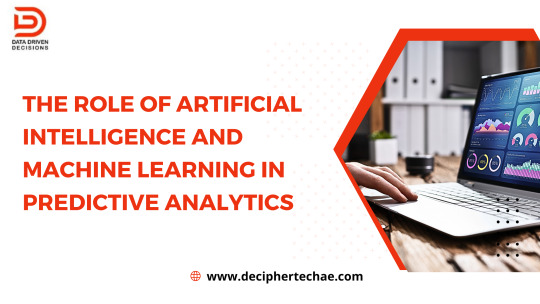
Predictive analytics revolutionizes industries by providing data-driven insights that help businesses anticipate future trends, behaviors, and outcomes. At the heart of predictive analytics are two powerful technologies: artificial intelligence (AI) and machine learning (ML). This blog delves into the roles of AI and ML in predictive analytics, their distinctions, use cases, and the business benefits they bring.
What is Artificial Intelligence?
Artificial Intelligence (AI) is a broad field of computer science focused on creating systems capable of performing tasks that typically require human intelligence. These tasks include learning, reasoning, problem-solving, understanding natural language, and perceiving the environment. AI systems can be classified into narrow AI, designed for specific tasks, and general AI, which can perform any intellectual task a human can.
What is Machine Learning?
Machine Learning (ML) is a subset of AI that involves the development of algorithms that allow computers to learn from and make decisions based on data. Instead of being explicitly programmed to perform a task, ML systems use statistical techniques to improve performance as more data becomes available. There are several types of ML, including supervised learning, unsupervised learning, semi-supervised learning, and reinforcement learning, each serving different purposes based on the nature of the data and the desired outcome.
What is Predictive Analytics?
Predictive analytics uses historical data, statistical algorithms, and machine learning techniques to identify the likelihood of future outcomes based on historical data. It involves analyzing past and current data to predict future trends, events, and behaviours. Predictive analytics is widely used in various industries, including finance, healthcare, marketing, and manufacturing, to make informed decisions and gain a competitive edge.
AI versus ML versus Predictive Analytics
While AI, ML, and predictive analytics are interrelated, they are not synonymous:
AI is the overarching concept of machines mimicking human intelligence.
ML is a subset of AI focused on algorithms that learn from data.
Predictive analytics is a process that uses statistical methods and ML to make predictions about future events.
Predictive analytics often employs machine learning techniques, a critical artificial intelligence component.
Use Cases of AI, ML, and Predictive Analytics
AI Use Cases
Healthcare: AI-driven systems can diagnose diseases, suggest treatments, and predict patient outcomes. For example, IBM Watson Health uses AI to analyze large volumes of medical data to assist in diagnosis and treatment planning.
Finance: AI algorithms are used for fraud detection, algorithmic trading, and risk management. AI can analyze vast amounts of transaction data in real time to identify unusual patterns indicative of fraud.
Customer Service: AI-powered chatbots and virtual assistants, like Amazon's Alexa and Apple's Siri, provide customer support and enhance user experience by understanding and responding to natural language queries.
Autonomous Vehicles: AI enables self-driving cars to perceive their environment, make decisions, and navigate without human intervention. Companies like Tesla and Waymo are at the forefront of this technology.
ML Use Cases
Recommendation Systems: Platforms like Netflix and Amazon use ML algorithms to analyze user behaviour and preferences to recommend movies, shows, and products.
Spam Detection: Email providers use ML to identify and filter out spam messages. Google's Gmail, for example, uses ML models to improve spam detection accuracy.
Predictive Maintenance: In manufacturing ML models predict equipment failures before they occur, allowing for timely maintenance and reducing downtime. GE uses ML in its Predix platform to enhance industrial equipment maintenance.
Image and Speech Recognition: ML algorithms power facial recognition systems, image classification, and voice-activated assistants. Applications include security systems and personal assistant devices.
Predictive Analytics Use Cases
Retail: Predictive analytics helps retailers forecast demand, optimize inventory, and personalize marketing campaigns. For instance, Walmart uses predictive analytics to manage its supply chain efficiently.
Healthcare: Predictive models identify at-risk patients, predict disease outbreaks, and optimize resource allocation. Healthcare use predictive analytics to manage patient flow and improve care delivery.
Finance: Financial institutions use predictive analytics for credit scoring, risk assessment, and portfolio management. Companies like decipher use predictive models to assess credit risk.
Marketing: Businesses leverage predictive analytics to segment customers, predict lifetime value, and tailor marketing efforts. Predictive analytics helps companies like Amazon target customers with relevant product recommendations.
Business Benefits of AI, ML, and Predictive Analytics
Enhanced Decision-Making: By providing data-driven insights, these technologies enable businesses to make informed decisions, reducing uncertainty and improving strategic planning.
Increased Efficiency: Automating routine tasks through AI and ML reduces manual effort, allowing employees to focus on higher-value activities. This leads to cost savings and improved operational efficiency.
Improved Customer Experience: Personalization and targeted marketing enhance customer satisfaction and loyalty. Predictive analytics helps businesses understand customer behaviour and preferences, leading to more effective engagement strategies.
Competitive Advantage: Organizations that adopt AI, ML, and predictive analytics can anticipate market trends and adapt quickly, gaining an edge over competitors.
Risk Mitigation: Predictive models identify potential risks and enable proactive measures. For example, predictive analytics helps detect fraudulent transactions and manage credit risk in finance.
Innovation: These technologies open up new possibilities for innovation, allowing businesses to develop new products and services that meet evolving customer needs.
Conclusion
Artificial intelligence and machine learning are pivotal in predictive analytics, transforming data into actionable insights that drive business success. By understanding the nuances and applications of these technologies, organizations can harness their potential to predict future trends, optimize operations, and enhance decision-making. As AI and ML evolve, their integration into predictive analytics will undoubtedly lead to even more sophisticated and accurate predictions, further solidifying their importance in business.
FAQ
What are the key differences between artificial intelligence, machine learning, and predictive analytics?
Artificial intelligence (AI) is a broad field aimed at creating systems capable of performing tasks that typically require human intelligence, such as learning, reasoning, and problem-solving. Machine learning (ML) is a subset of AI focused on developing algorithms that enable computers to learn from data and improve their performance over time. Predictive analytics is a process that uses statistical techniques and ML to analyze historical data and predict future outcomes. Predictive analytics often employs ML techniques, and ML is a component of AI.
How do businesses benefit from using AI and ML in predictive analytics?
Businesses benefit from using AI and ML in predictive analytics in several ways, including enhanced decision-making through data-driven insights, increased operational efficiency by automating routine tasks, improved customer experience through personalized marketing, gaining a competitive advantage by anticipating market trends, mitigating risks by identifying potential issues early, and fostering innovation by developing new products and services that meet evolving customer needs.
Can you provide examples of predictive analytics use cases in different industries?
Yes, predictive analytics is used across various industries. In retail, it helps forecast demand and optimize inventory. In healthcare, predictive models identify at-risk patients and optimize resource allocation. Financial institutions use predictive analytics for credit scoring and risk assessment. In marketing, businesses leverage it to segment customers and predict lifetime value. For example, Walmart uses predictive analytics to manage its supply chain, while hospitals use it to improve patient flow and care delivery.
What are some typical applications of machine learning in everyday life?
Machine learning is widely applied in everyday life. Some typical applications include recommendation systems used by Netflix and Amazon to suggest movies and products, spam detection in email services like Gmail, predictive maintenance in manufacturing to foresee equipment failures, image and speech recognition in security systems, and voice-activated assistants like Apple's Siri and Amazon's Alexa. These applications enhance user experience, improve efficiency, and provide personalized services.
How does predictive analytics help in risk mitigation for businesses?
Predictive analytics helps businesses mitigate risks using data-driven models to identify potential hazards and enable proactive measures. For example, in finance, predictive models can detect fraudulent transactions by analyzing patterns and anomalies in transaction data. In healthcare, predictive analytics can foresee patient readmission risks and prompt preemptive interventions. By anticipating risks, businesses can take preventive actions, thus reducing the likelihood of adverse outcomes and minimizing financial losses.
#data science and analytics company#fmcg companies in dubai#data science solutions for fmcg in dubai#fmcg sector in dubai#data science solutions for fmcg#maximizer crm provider in dubai#data-driven sales and marketing solutions in dubai#maximizer crm in dubai#retail company dubai#retail expansion in dubai#AI and ML in predictive analytics
0 notes